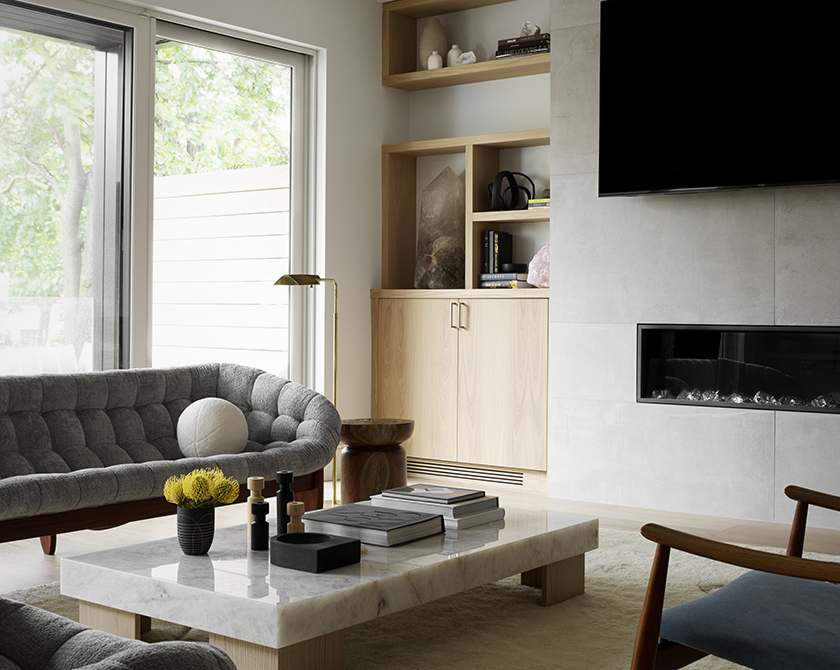When it comes to purchasing a new home, one of the most significant decisions you’ll face is whether to invest in a custom-built home or opt for a pre-built or “production” home. Both options have their merits, but understanding what sets custom homes apart from pre-built homes can help you make an informed decision that aligns with your lifestyle, needs, and budget.

In this blog, we’ll explore the key differences between custom homes and pre-built homes, from design flexibility to cost considerations, and how each option may impact your overall homeownership experience.
1. Design Flexibility and Personalization
One of the most significant advantages of building a custom home is the ability to personalize every detail. From the layout and floor plan to the materials, finishes, and even the landscaping, a custom home allows you to create a space that’s uniquely tailored to your preferences.
In a custom build, you have the freedom to choose the number of bedrooms, the size of your kitchen, the style of your bathrooms, and other essential features, all based on your personal tastes and needs. If you have a vision for a home that reflects your lifestyle—whether it’s an open-concept design, a home office, or an expansive main suite—custom homes provide you with the opportunity to bring that vision to life.
2. Quality of Materials and Construction
When you build a custom home, you have complete control over the quality of the materials used in construction. From the foundation to the roofing materials, flooring, cabinetry, and everything in between, you can choose high-quality products that suit your tastes and durability standards. Whether you prefer sustainable, eco-friendly materials, luxurious finishes, or a more budget-conscious option, a custom home allows you to make decisions that meet your personal criteria.
3. Location and Lot Selection
Custom homes offer the flexibility to choose the perfect lot for your new home. Whether you’re looking for a plot in a rural area with expansive views, a lot in a vibrant city neighbourhood, or a space that offers privacy and seclusion, building a custom home gives you the ability to select the ideal location. You can also work with your builder to optimize your home’s design to suit the natural landscape, taking advantage of sunlight, views, or terrain features that enhance your living experience.
Pre-built homes, on the other hand, are typically located in established neighbourhoods or subdivisions. While this can offer the convenience of proximity to schools, shops, and amenities, it may limit your options in terms of location. Additionally, you may not have as much flexibility to adjust the home’s design to take full advantage of the lot’s characteristics.
4. Timeframe and Speed of Construction
One of the key differences between custom homes and pre-built homes is the construction timeline. Building a custom home from scratch can take several months or even years, depending on the complexity of the design and the availability of materials. Custom homes require careful planning, coordination with architects and contractors, and the approval of permits, which can all contribute to a longer timeframe.
5. Cost Considerations
When it comes to cost, custom homes tend to be more expensive than pre-built options. The cost of a custom home is influenced by several factors, including the complexity of the design, the quality of materials, labour costs, and the size of the home. Additionally, custom homes require architectural fees, permitting, and sometimes land preparation, all of which can add up quickly.
6. Energy Efficiency and Sustainability
Sustainability is an important consideration for many homebuyers, and custom homes offer the opportunity to incorporate energy-efficient features from the outset. You can choose energy-efficient windows, insulation, HVAC systems, and appliances, all of which can help reduce your environmental impact and lower utility bills over time. Many custom builders also offer eco-friendly construction practices, such as using sustainable building materials, installing solar panels, or designing homes with passive heating and cooling features.
7. Long-Term Value and Investment
Custom homes can offer significant long-term value, particularly if you build in a desirable location and incorporate high-quality materials that are built to last. Custom homes are unique, and because they are designed to suit your specific needs, they may be better equipped to meet your family’s changing requirements over time. Furthermore, custom homes that are designed with longevity and energy efficiency in mind can save you money on maintenance and utilities in the future.
8. Emotional Satisfaction and Connection
One of the intangible benefits of building a custom home is the emotional satisfaction that comes with knowing your home is truly one-of-a-kind. Custom homes allow you to make decisions every step of the way, from choosing the floor plan to selecting finishes, ensuring that the home is an authentic reflection of your personality and lifestyle. The ability to design your home with your own vision and preferences in mind can create a deeper connection to the space, making it feel truly “yours” in a way that pre-built homes may not.
Pre-built homes, while functional and often well-designed, may not evoke the same level of emotional connection since they are built according to a pre-designed plan that may not perfectly align with your personal taste. While some homeowners may find satisfaction in the convenience and practicality of a pre-built home, others may prefer the sense of ownership and creativity that comes with a custom build.
Choosing between a custom home and a pre-built option depends on your priorities, budget, and long-term goals. Custom homes offer unparalleled flexibility, allowing you to design a space that perfectly fits your needs and preferences, but they come with a higher price tag and a longer timeline. Pre-built homes, on the other hand, are typically more affordable and quicker to move into, though they may require compromises in terms of design and customization.








